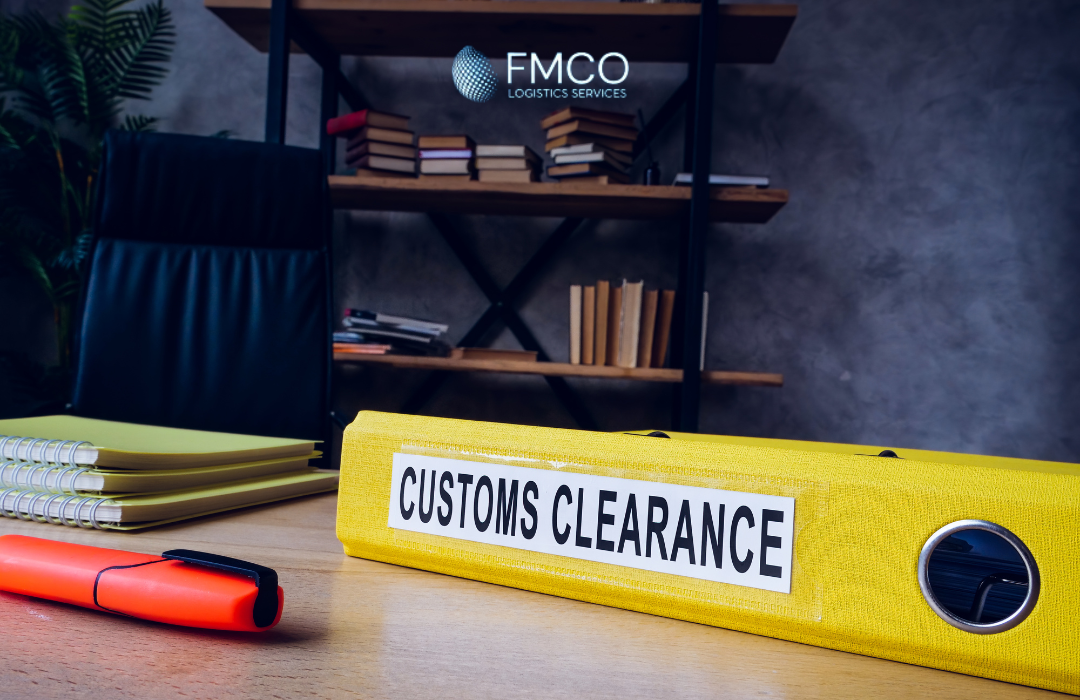Custom clearance in Saudi Arabia is a crucial step for importers and exporters, requiring strict adherence to regulations and procedures. Whether you are shipping goods into or out of the Kingdom, understanding Saudi customs laws is essential for smooth and efficient freight forwarding. At FMCO, we provide expert guidance to help you navigate the complexities of import and export procedures.
Essential Documentation for Custom Clearance in Saudi Arabia
Accurate documentation is the backbone of efficient custom clearance. Missing or incorrect paperwork can lead to unnecessary delays and added costs. Here are the key documents required for freight forwarding in Saudi Arabia:
Commercial Invoice: Details of the seller, buyer, description of goods, and their value.
Bill of Lading or Airway Bill: A contract between the carrier and shipper, ensuring safe transportation of goods.
Certificate of Origin: Issued by the Chamber of Commerce, verifying the origin of goods.
Packing List: Includes details about the shipped items, such as quantity, weight, and packaging.
Import/Export License or Permit: Required for restricted goods like pharmaceuticals, military equipment, and electronics.
Customs Declaration Form (FASAH System): All importers and exporters must declare their goods electronically through Saudi Arabia’s FASAH system.
Tips for Importers in Saudi Arabia
To ensure seamless import operations, follow these essential tips:
Understand Saudi Import Regulations: Familiarize yourself with prohibited and restricted items.
Select Reliable Suppliers: Work with trustworthy suppliers and conduct pre-shipment inspections.
Prepare Accurate Documentation: Ensure all required documents, including invoices and certificates, are complete and error-free.
Work with Experienced Customs Brokers: Licensed brokers help navigate Saudi Arabia’s complex customs procedures.
Declare Goods Correctly: Use accurate HS codes and state the true value of shipments.
Stay Informed About Duties and Taxes: Saudi Arabia applies a 15% VAT; plan your budget accordingly.
Track Your Shipment: Use tracking systems to anticipate potential delays.
Prepare for Inspections: Ensure compliance with local standards and keep necessary paperwork ready.
Stay Updated on Regulatory Changes: Follow industry updates and participate in training sessions.
Optimize Logistics: Choose reputable freight forwarders for timely and cost-effective shipping.
Tips for Exporters in Saudi Arabia
If you are exporting goods from Saudi Arabia, consider these key factors:
Understand Export Regulations: Ensure compliance with necessary permits and licenses.
Conduct Market Research: Identify target markets and analyze competitor offerings.
Develop an Export Strategy: Define goals, risk assessments, and logistics plans.
Prepare Accurate Documentation: Ensure commercial invoices, certificates, and licenses are in order.
Select the Right Distribution Channels: Partner with local distributors or utilize e-commerce platforms.
Adopt a Competitive Pricing Strategy: Factor in market demand and currency fluctuations.
Leverage Digital Marketing: Use tailored campaigns to reach international audiences.
Manage Shipping Logistics Efficiently: Collaborate with experienced freight forwarders for hassle-free transportation.
Monitor Export Performance: Track key performance indicators (KPIs) and gather customer feedback.
Stay Updated on Trade Policies: Keep up with trade agreements and legal requirements.
Frequently Asked Questions (FAQs)
For Importers
Q1: Why is choosing reliable suppliers important?
A: Quality suppliers ensure compliance with Saudi regulations, reducing customs clearance delays.
Q2: How can customs brokers help with the import process?
A: They assist with documentation, regulatory processes, and communication with customs authorities.
Q3: What is the importance of using correct HS codes?
A: HS codes classify goods correctly, ensuring accurate duty and tax calculations.
Q4: What should I consider for logistics planning?
A: Work with reputable freight forwarders like FMCO, considering cost, urgency, and shipping timelines.
For Exporters
Q1: Why is market research essential before exporting?
A: It helps understand product demand, competition, and regulatory requirements in the target market.
Q2: What key documents are needed for exporting?
A: Export licenses, commercial invoices, packing lists, and certificates of origin.
Q3: What distribution channels can I use for exporting?
A: Local distributors and e-commerce platforms can help reach international customers.
Q4: Why are Incoterms important in export agreements?
A: Clearly defined shipping terms prevent misunderstandings and disputes.
Conclusion
Ensuring smooth customs clearance in Saudi Arabia requires a thorough understanding of regulations, accurate documentation, and strategic partnerships with experienced brokers and freight forwarders like FMCO. Importers should prioritize compliance with duties and taxes, reliable supplier selection, and shipment tracking. Meanwhile, exporters should focus on market research, competitive pricing, and effective distribution strategies. Staying updated on industry regulations and optimizing logistics are key to avoiding delays and ensuring success in international trade.
Need expert freight forwarding and custom clearance services? Contact FMCO today!

